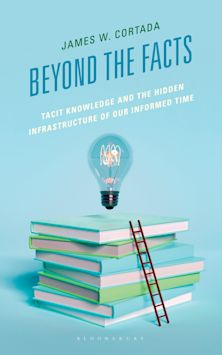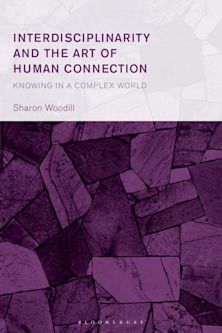- Home
- ACADEMIC
- Philosophy
- Epistemology
- The Epistemology of Disasters and Social Change
The Epistemology of Disasters and Social Change
Pandemics, Protests, and Possibilities
The Epistemology of Disasters and Social Change
Pandemics, Protests, and Possibilities
This product is usually dispatched within 1 week
- Delivery and returns info
-
Free US delivery on orders $35 or over
You must sign in to add this item to your wishlist. Please sign in or create an account
Description
An earthquake in Mexico City spurs the rise of democracy. A plague in South Africa lays the foundations for apartheid. A terrorist attack on New York City triggers massive shifts in global security. A global pandemic sets the stage for the largest civil rights protests in generations.
Beyond their physical impact, disasters assault our certainty and shape a narrow space to alter the structure of what we believe. That change can lead us toward disinformation and authoritarianism, or it can lead us toward greater solidarity and human rights. It all depends on the choices we make as we live through crisis; on how, in fact, we choose to know each other.
The Epistemology of Disasters and Social Change draws on social epistemology, disaster sociology, psychology and feminist philosophy to investigate how disasters function as cauldrons of social transformation, for good and ill. We wrestle with how disasters change us, moment by moment, and provide new strategies to help these tragic eventsproduce positive social transformation, leading to a brighter future during this century of crisis.
Product details
| Published | May 09 2024 |
|---|---|
| Format | Hardback |
| Edition | 1st |
| Extent | 406 |
| ISBN | 9781538171820 |
| Imprint | Rowman & Littlefield Publishers |
| Illustrations | 14 BW Photos, 4 Tables |
| Dimensions | 9 x 6 inches |
| Series | Collective Studies in Knowledge and Society |
| Publisher | Bloomsbury Publishing |
About the contributors
Reviews
-
In this timely book, Jordan Pascoe and Mitch Stripling offer interdisciplinary work at its finest by deftly weaving multiple perspectives together to reveal how existing emergency management systems reinforce structural injustice. Their original framework helps us not only understand the epistemological forces that sustain the destructive power of disasters but also see the spark of social and political transformation disasters contain. The Epistemology of Disasters and Social Change is a must-read for anyone interested in more caring, equitable, and just ways of facing the inevitable crises to come.
Sarah Clark Miller, Pennsylvania State University

ONLINE RESOURCES
Bloomsbury Collections
This book is available on Bloomsbury Collections where your library has access.


































